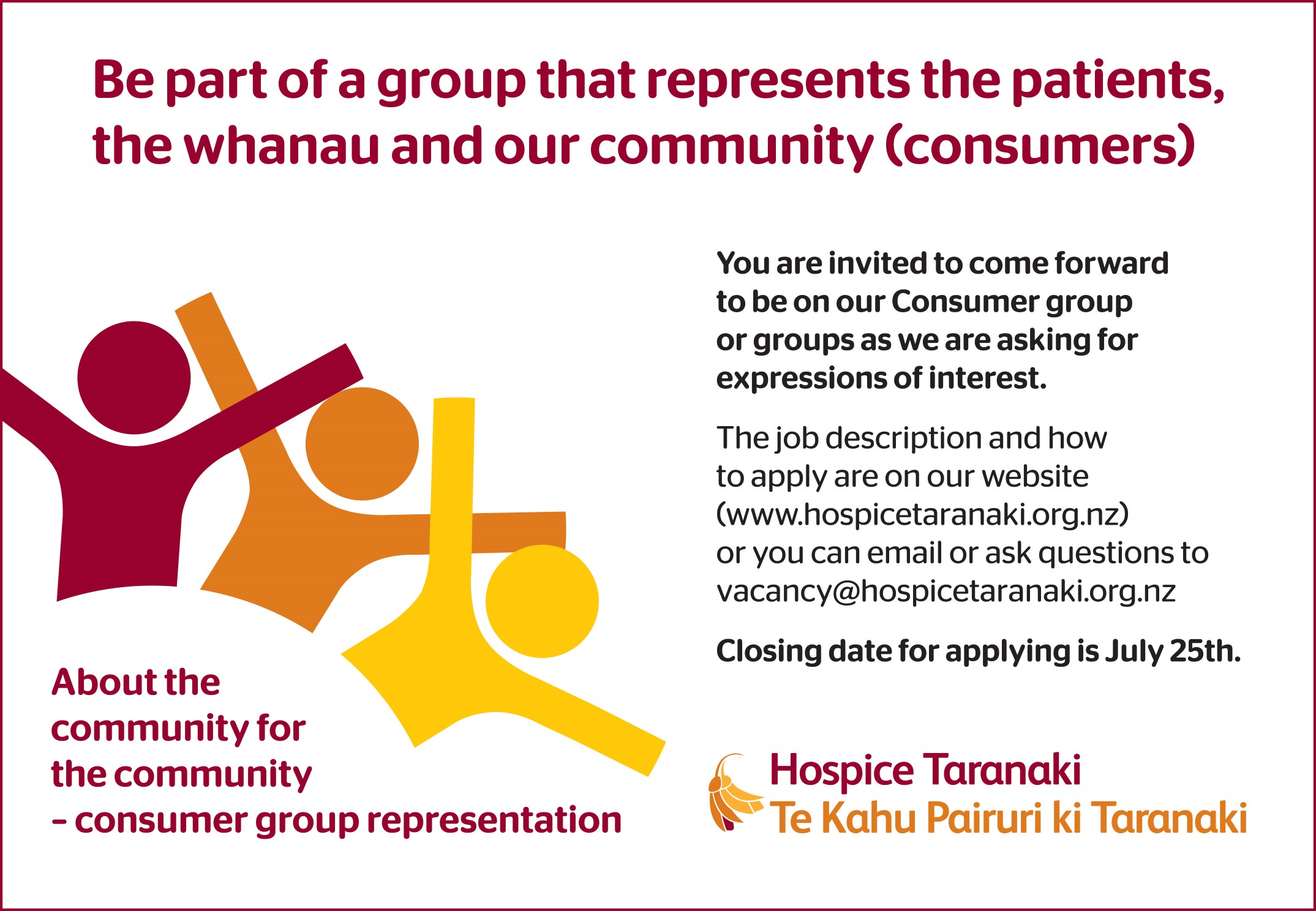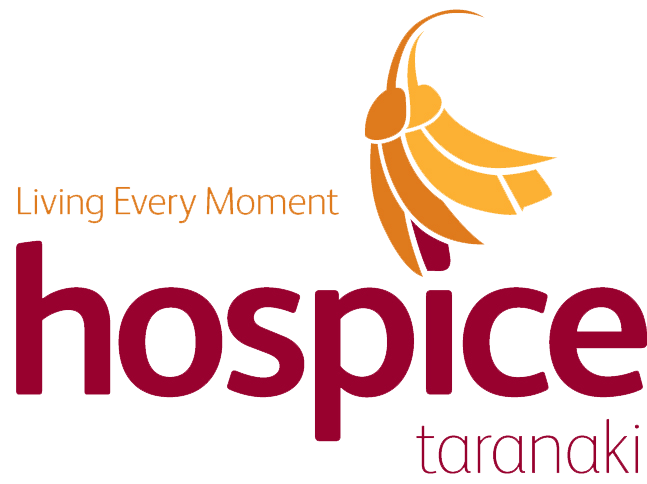Consumer Group - are you interested in being a voice?

Te Kahu Pairuri Hospice Taranaki are creating a group who will be a voice for patients, the whānau and community (consumers).
The consumer group, by providing different prospective, will strengthen current hospice systems, so that the very best quality palliative care focused on the patients’ needs and what is important to them and their whānau is provided.
It is interesting that we began just over 30 years ago – created by the driving force of the community. Since then, we have evolved and we want to make sure we haven’t lost sight and that we are still fulfilling our purpose. To clearly hear what the consumers are saying we need to create a diverse consumer group.
Naumai, haere mai
We would like to invite you to come forward to be a part of our consumer group to partner with, Te Kahu Pairuri Hospice Taranaki, in the ongoing design of our services. Ideally individuals with varied backgrounds, experiences can apply to ensure the best outcomes.
All people who are interested in contributing to the development of improving hospice services are welcome to apply.
Application - Te Kahu Pairuri Hospice Taranaki Consumer Group Expressions of Interest - please download the form - then email to vacancy@hospicetaranaki.org.nz
Role Description - for the Consumer Group - please download
Whakauruhia mai
Join and be a voice, apply today with the above application form (or phone us 06 753 7830 and ask for Glenda)
PRESS RELEASE 6TH July 2023 :
Voices for Hospice
After 30 years at the forefront of palliative care, Taranaki’s hospice is turning the spotlight on itself and putting out the call to the wider community to ensure they remain up to date, progressive and fully representative.
Te Kahu Pairuri Hospice Taranaki offers free palliative care 24 hours a day, seven days a week and is much valued by those who have benefitted.
“We want this to be as consumer driven as possible,” hospice quality and systems manager Glenda Butturini says. “We want to make sure we have people with the skills we need, as well as a broad a group as we can, who will speak for our community. They can then tell us what they need and want as our current priorities may not be what matter to them.”
The plan is to appoint three folk to the initial focus group whose job would then be to find representatives of the region’s widely divergent population to look into different aspects of the work that hospice does.
“We would love people who have never heard of us to come on board so we can have a different perspective, as well as those who have used our services or may be currently using the services.”
The hospice offers a totally unique health care service in that the patient is central throughout the process, Glenda says.
“This is the one place the patient really is the centre. It is so much more personal.” This makes it even more important to reach every corner of the region to ensure all people are heard, she says.
“What works for Auckland for example will not work for us here. In Taranaki our population mix is very different.”
The focus group will not work alone. The hospice’s internal consumer group working party, which includes a doctor, pharmacist, counsellor, Māori liaison nurse and nurses to work closely with the focus group to ensure they get all the support they need.
An example of what the focus group will explore is whether the current questionnaire is asking for the correct feedback from families and whānau following the deaths of people who have been in hospice care.
“We want them to look into whether we are asking the right questions or whether they should be changed. The comparison is between what we do now and what we could be doing better.
The range of information booklets currently on offer will also come under review.
Those who feel they can assist can sign up via the Hospice Taranaki website, come into Te Rangimarie hospice reception on David St or from a HospiceShop or have an expression of interest form posted out to them.
Currently the hospice provides palliative care support to 220 patients and their whānau. These people will mainly receive care in their own home or as needed then in one of the 5 beds of Te Rangimarie (hospice in-patient unit).
